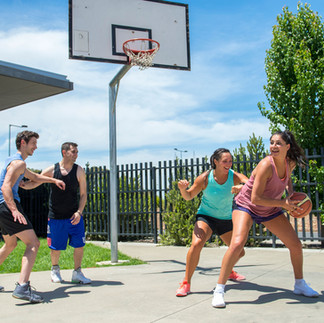Empowering Social Growth: Exploring the PEERS® Program
- caretakershk
- Jan 24, 2025
- 3 min read
Social skills are essential for building meaningful relationships and navigating life’s complexities. For individuals with autism spectrum disorder (ASD), attention deficit hyperactivity disorder (ADHD), anxiety, and other socio-emotional challenges, evidence-based interventions can make a world of difference. One such program that has consistently demonstrated success is PEERS® (Program for the Education and Enrichment of Relational Skills).
What is PEERS?
PEERS® is a world-renowned, evidence-based social skills intervention developed at UCLA. Designed for adolescents and young adults, this 16-week program equips participants with practical skills to improve their social communication and build lasting relationships. The program caters to teenagers (12–17 years) and young adults (18–24 years) with ASD, ADHD, anxiety, depression, or other social challenges.
What sets PEERS® apart is its focus on skills that reflect what socially successful individuals naturally do, making it highly relevant and effective for today’s social environment.

Key Features of the PEERS® Program
For Teens (12–17 Years)
PEERS® for teens focuses on foundational social skills, such as:
Conversational Skills: Initiating, maintaining, and exiting conversations appropriately.
Friendship Selection: Identifying peers who share similar interests.
Humor Usage: Understanding and assessing humor feedback.
Handling Conflict: Resolving disagreements effectively and tactfully.
Addressing Social Challenges: Managing rejection, teasing, bullying, gossip, and cyberbullying.
Planning Social Activities: Organizing and participating in get-togethers with peers.
For Young Adults (18–24 Years)
The young adults’ program builds on social foundations and introduces skills for navigating romantic and professional relationships. Topics include:
Dating Etiquette: Understanding norms for initiating and maintaining romantic relationships.
Electronic Communication: Using social media and texting appropriately.
Conflict Resolution: Managing arguments and disagreements constructively.
Reputation Management: Overcoming negative perceptions and building positive social identities.
Parental Involvement: A Unique Element of PEERS®
One standout feature of PEERS® is its parent-assisted approach. Parents or social coaches actively participate in the program, learning how to support their child’s social development. This involvement ensures that skills practiced during sessions are reinforced in real-life situations. Research highlights that parental engagement significantly reduces stress within families and fosters stronger connections.
Why PEERS® Works: Evidence of Effectiveness
The PEERS® program has been rigorously evaluated in multiple studies, demonstrating remarkable outcomes:
Improved Social Responsiveness: Participants show increased ability to read and respond to social cues.
Reduced Anxiety and Depression: Learning effective social strategies leads to greater confidence in navigating social interactions.
Enhanced Empathy: Participants develop stronger social cognitive skills, fostering deeper connections with others.
Sustained Results: Long-term studies indicate that skills learned in PEERS® continue to benefit participants years after program completion.
Program Accessibility and Delivery
PEERS® is delivered through weekly group sessions, which include:
Didactic Lessons: Structured teachings on specific social skills.
Role-Playing Activities: Hands-on practice to reinforce lessons.
Homework Assignments: Real-world application of learned skills.
In addition to in-person programs, telehealth adaptations make PEERS® accessible for individuals in remote areas or those with unique challenges, such as cerebral palsy or brain injuries.
A Closer Look at PEERS® Research
Numerous studies affirm the program’s impact:
Friendship-Building for Teens: Adolescents with ADHD and ASD reported improved ability to make and keep friends.
Reduced Parenting Stress: Parents involved in PEERS® observed enhanced family dynamics.
Social Skills Training: Young adults with high-functioning ASD experienced significant improvements in communication and relationship-building.
The program’s success is grounded in its adaptability and commitment to addressing shared social deficits in a way that resonates with participants.
Bibliography
PEERS® for Young Adults, Companion Websites on YouTube: YouTube Playlist
Telehealth PEERS® Program for Brain Injury or Cerebral Palsy, Queensland Cerebral Palsy and Rehabilitation Research Centre: UQ Project
PEERS® Program Overview, Optimummovement: Optimummovement
Research Paper: Replication and Extension of the Research Findings for the PEERS® for Adolescents Program, Journal of Autism and Developmental Disorders: DOI: 10.1007/s10803-015-2504-8








Comments